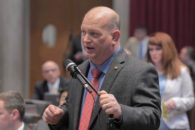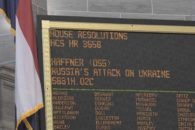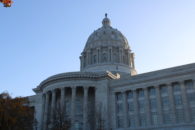In the wake of the devastating winter storms earlier this year, Kansas City International Airport (KCI) received a $2.4 million natural gas bill — but the city is pushing back.
“Kansas City certainly understands the energy industry challenges from this winter, primarily originating in the southwest,” Mayor Quinton Lucas said on social media. “We do not believe, however, those costs should be disproportionately assessed to our MoKan flying public.”
Lucas said the City Manager’s Office would look into the situation, and it has: Chris Hernandez, communications director for the Kansas City Manager’s Office, said Texas-based natural gas company Symmetry Energy Solutions lowered KCI’s bills after initial conversations, but the parties continued to “negotiate and research options.”
According to Hernandez, the average bill for KCI Aviation, the airport’s repair station, is around $80,000; February’s initial bill of $2.4 million was eventually adjusted down to $2.1 million. The city originally contracted with the company in the early 2000s seeking to purchase fuel directly from the supplier.
“That created a situation where we were exposed to price fluctuations,” Hernandez told The Missouri Times. “In most years, that has not been a problem. But as we now see, the February cold spell caused a spike in prices that has affected multiple cities and other large organizations across the country.”
Ryan Silvey, chairman of the Missouri Public Service Commission (PSC), said the arrangement left customers vulnerable to extreme shifts in the market like the one seen after the storms.
“Typically the contracts from those marketers follow the spot price — they take whatever the current spot price is and mark it up, and pass it directly on to the consumers,” Silvey said. “That’s great when the market’s good, but when the market goes sideways as it did during the cold weather event, that means your bill is going to spike.”
Winter storms struck the midwest in February, impacting everything from vaccine distribution to the legislature and forcing companies to initiate rolling blackouts. The fallout is still dominating the conversation as investor-owned utilities, including Spire Missouri, evaluate ways to mitigate the impact of increased costs on customers.
Gov. Mike Parson also requested a Municipal Utility Emergency Loan Program as a supplemental budget item at the behest of lawmakers to assist local utilities dealing with the aftermath.

Cameron Gerber studied journalism at Lincoln University. Prior to Lincoln, he earned an associate’s degree from State Fair Community College. Cameron is a native of Eldon, Missouri.
Contact Cameron at cameron@themissouritimes.com.





















